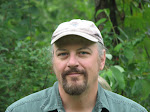
Weighing in lightly on the nest of snakes debate raging over over Chris Jones's latest posting over at his always worth reading blog, http://sonofboldventure.blogspot.com/2011/04/absolute-truth.html all I have to say is this:
As writers, I think most of us are motivated by either being for or against something, and that we write either "because of" or "in spite of." I've usually been an "against" and "in spite of" writer, but have recently trended more toward the "for" and "because of," but . . . whatever. The key for all of us is to find the reason to do this, and to keep down the distractions that prevent that from happening, because any time we're not focusing on the work, we're not focusing on the work.
How we reach that place is very personal, and perhaps unknowable, even to ourselves. That, in and of itself, can at times be a distraction, so tred carefully.


